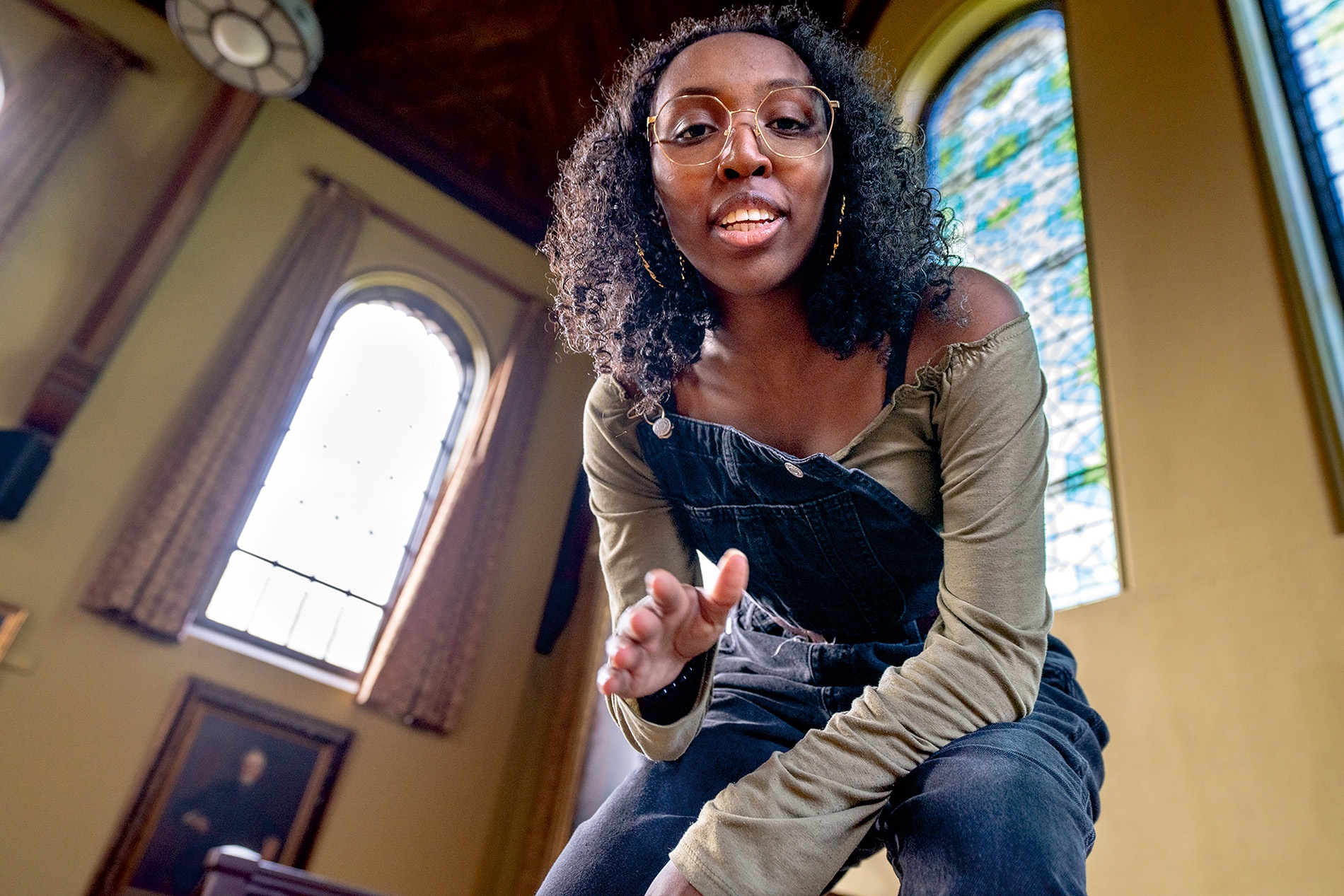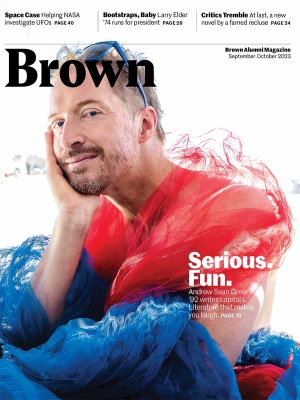Rap songwriter Yeabfikir Ayele Alemayehu ’25 shares her love of God through songs that cover topics as wide as childhood memories of Addis Ababa, Ethiopia, and the deadly history of Paris Green, the arsenic-based paint pigment. Her lyrics are infused with personal insights from her journey as a Christian alongside Bible verses and Amharic sayings. “The message at the end of the day is, you are the light of the world, and being a light does not mean you get to pick and choose who you shine on,” she says. “You are a light. That means you bring love and happiness, peace and hope to people.”
Rap has always been part of Alemayehu’s life; her dad’s CD of Tawana Ross, a Christian rap musician, meant that “I’ve literally since I was a toddler had that exposure to rap songs. As I explored all the other types of genres of music, it became more apparent to me that okay, rap is just in everything.”
Now double concentrating in international and public affairs and storytelling, Alemayehu continues to draw inspiration from her favorite artists. “I listen to multiple things. Lecrae, Andy Mineo, Mali Music. Hulvey, Lauryn Hill, Pastor T. L. Barrett.” She adds: “Dr. Dereje Kebede. That is like old Amharic Christian music and I really love his message style, and Mulatu Astatke is like the father of Ethiopian jazz. And I really love his sound, too.”
Writing her first rap for Professor Joseph Rovan’s course On Songs and Songwriting last spring, Yeabfikir begins “Untreated Ham” with: “When I was just a little kid/ Who am I kidding still am/ Eatin ham outta its plastic wrapper/ Uncooked, probably untreated/ Tape worms, we’ll find out.”
The song refers to the divide over eating pork between Christian denominations that she encountered in Ethiopia. “It was always this idea of, ‘Oh, you eat ham? Oh, yeah, I do.’ And that was where the conversation stopped.” Alemayehu dreams of setting aside a division like this: “It shouldn’t stop us from having conversations that are even more important—about Jesus being our Savior, about God and love.”
Alemayehu has brought her message to Underground Thursdays and on-campus concert halls, as well as SELAH Sessions, a collection of online platforms where Christian singer-songwriters from around the world engage in praise and prayer. Another song, “Time Will Tell,” explores the 1800s history of Paris Green dye, which people kept using even after it became clear it was deadly. “We could be like, ‘Wow, that’s such a bad decision to make,’ but we do it every day,” she reflects. “The Amharic portion of the song talks about this thing called gami ayeferam in Ethiopia. There’s this general idea of, you know, being brave. And this idea came up of, are we not afraid—or are we too scared to even say that we are afraid? And so it comes to this: Lord, please save me from these social constructs that anchor me to things that I don’t even want to be anchored to.”





